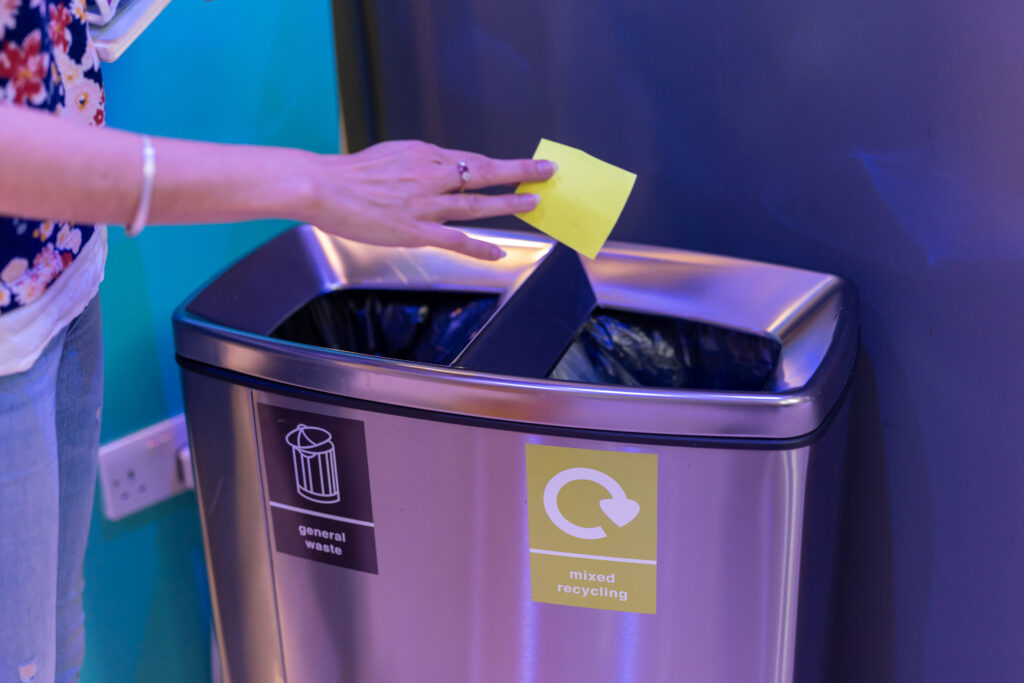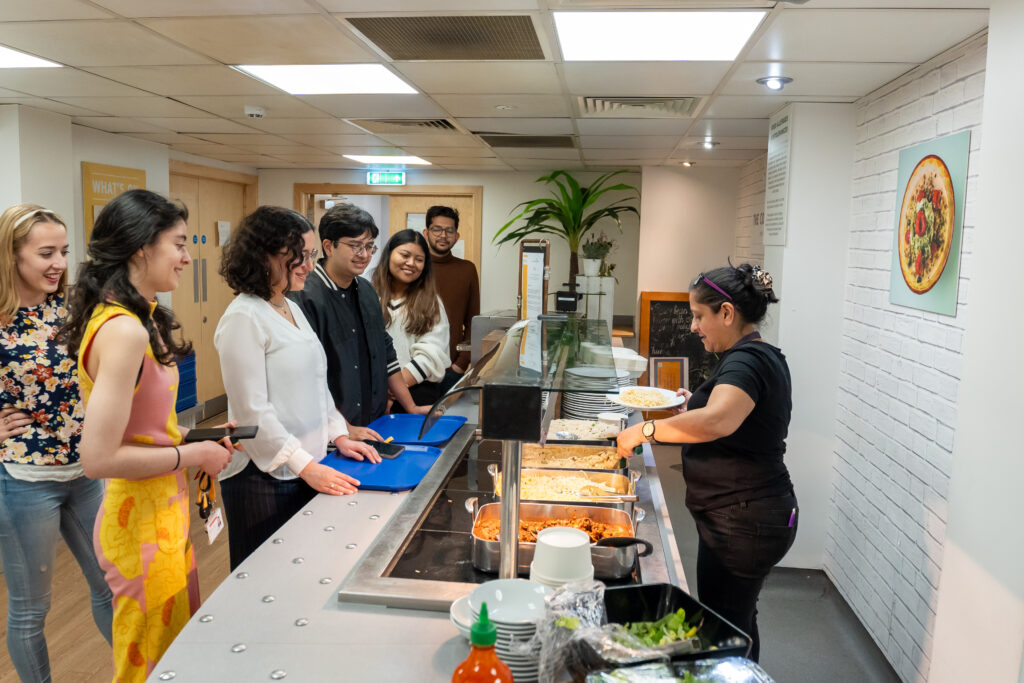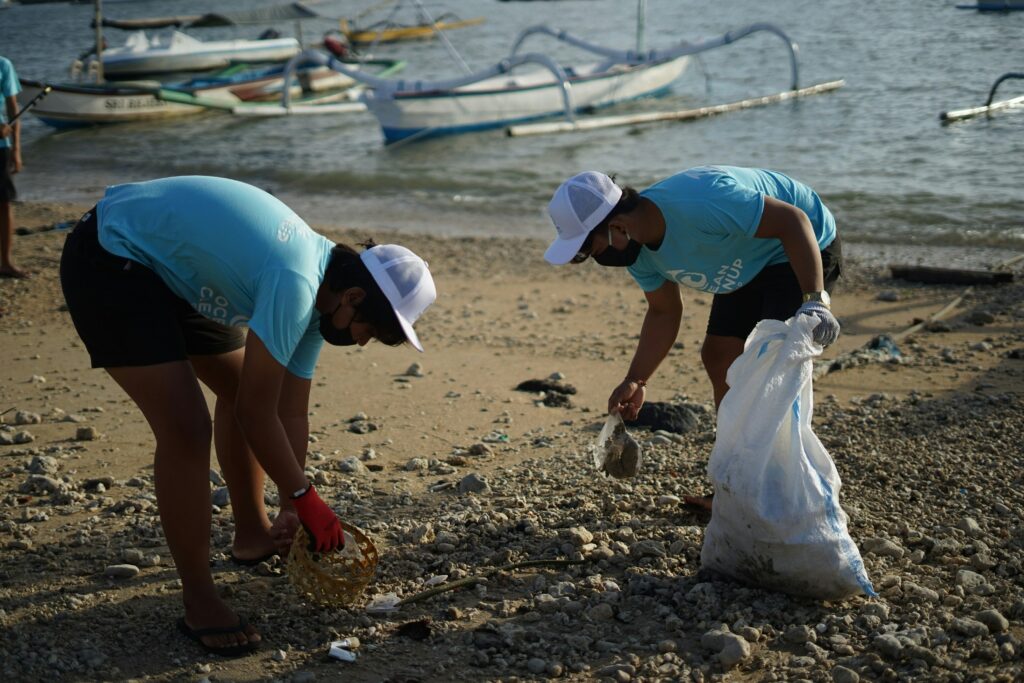Students have the power to make a significant impact on the environment through the choices we make in our daily lives. Adopting sustainable habits not only helps the planet but can also save you money and improve your overall well-being. If you are reading this and wondering what I can do to be more sustainable in my day-to-day life I hope these practical tips will help you live more sustainably as a student.
1. Reduce, Reuse, Recycle
The classic phrase of sustainability still holds – We all sometimes use much more products and energy than we require however if you start to reduce your consumption that can help massively. Consider whether you can borrow, rent or make do with what you already have. Choose second-hand or less reusable items like a reusable water bottle, coffee cup or shopping bag which can also save you some money. Try to familiarize yourself with your campus and local recycling programs. Make sure to sort your waste properly to ensure recyclables are processed correctly.

2. Sustainable Transportation
Walking, biking, or using public transportation are excellent ways to reduce your carbon footprint. Especially during the spring and summer time choose these options instead of using cars. Walking and bike riding are the most eco-friendly modes of transport and are also great for your health. If you must drive, consider carpooling with friends to reduce the number of vehicles on the road.
3. Conserve Energy
Small changes in your daily routine can lead to significant energy savings. Try getting into the routine of unplugging your devices. Electronics consume energy even when turned off. Unplug chargers, laptops, and other gadgets when not in use. One way I’m sure many of you are using less energy is with your LED lights. These will usually last longer than traditional bulbs and make your room look cool. Lastly, lower the thermostat in the winter and raise it in the summer. Wear appropriate clothing to stay comfortable without overusing heating or cooling.
4. Practice Sustainable Eating
Your food choices have a huge impact on the environment. Try to incorporate more plant-based meals into your diet. Meat production is resource-intensive and has a larger carbon footprint. You can start by having a no-meat day once a week to ease yourself into it. Support local farmers and reduce the carbon footprint of your food by buying seasonal produce. This leads on to one of the biggest causes of energy loss food waste. Plan your meals, store food properly, and compost scraps if possible. Meal prepping and making just enough for you to eat is one sure way of cutting down food waste.

5. Choose Eco-Friendly Study Supplies
Choose sustainable options when buying stationery. Digital notes are a great way to reduce the amount of paper you use. Maybe invest in a laptop or tablet when taking notes. When you need physical supplies, choose notebooks, paper, and pens made from recycled materials. You should be able to see if it’s recycled from the packaging. Use pens that can be refilled rather than disposable ones.
6. Shop Second-hand
Before buying something new, consider second-hand options. You can find clothes, furniture, and other essentials at thrift stores, often at a fraction of the cost. You don’t have to make your whole wardrobe second hand however if there are items that can be from thrift stores try that. Websites and apps like eBay, Depop, and Facebook Marketplace are great for finding second-hand goods. Many students buy fresh textbooks for their modules to then not use them again. Participate in book swaps or buy used textbooks to save money and reduce waste.

7. Be Mindful of Water Usage
Water is a precious resource, and saving it is crucial. Limit your shower time to save water and energy. If you see any leaks in your room, make sure to report them to maintenance so you are not wasting water for no reason. 460 million litres of water are wasted each year so, imagine if we can conserve our water and be mindful of our intake.
8. Get Involved
Join sustainability initiatives on your campus or at your place of residence. It’s our responsibility to understand why we are doing this and not just because someone is telling us to do so. Many universities have environmental clubs. Joining them is a great way to learn more and make a difference. You can volunteer and participate in campus cleanups, tree planting, and other eco-friendly activities. This is important as you can get hands-on and see your differences come to life. Make sure to promote sustainability in your student government or through campus campaigns. The more people who know about how they can be sustainable day to day will help our planet in the long run.

9. Mindful Consumerism
When shopping for items try to invest in high-quality items that will last longer. This means you would not need to pay for replacements and waste money and help the production of more items. Support companies that prioritise sustainability and ethical practices. Such as Innocent drinks and LEON plus many more. By adopting a minimalist mindset, you would be able to focus on buying only what you need and truly value.
10. Educate Yourself and Others
Knowledge is power, and spreading awareness can amplify your impact. Keep up with sustainability news and trends and discuss sustainability with friends and family. Encourage them to adopt eco-friendly habits as well. The more people who learn. Living sustainably as a student doesn’t have to be difficult. By making small, conscious changes in your daily habits, you can contribute to a healthier planet. Remember, every little bit helps, and your efforts can inspire others to follow suit. Let’s work together to make our homes, campuses and communities more sustainable!
Have you also read these articles?
10 Tips for a Zero Waste lifestyle
International Students House receives Gold Award for Sustainability

